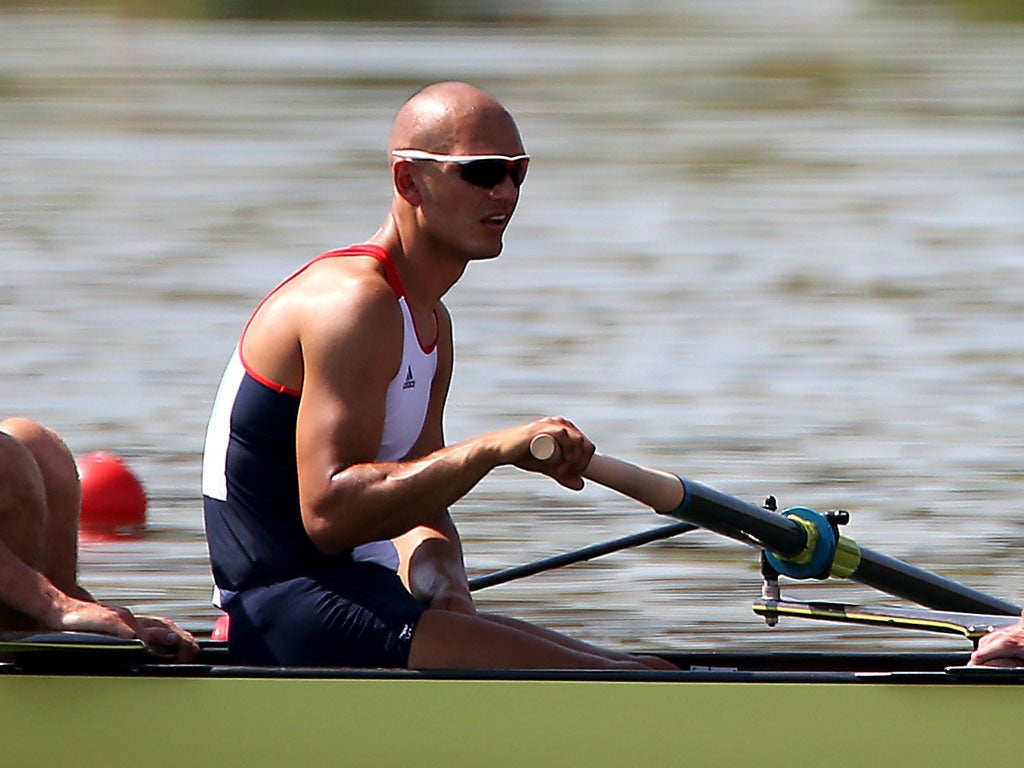Mohamed Sbihi finds charitable way to forgo fasting

Your support helps us to tell the story
From reproductive rights to climate change to Big Tech, The Independent is on the ground when the story is developing. Whether it's investigating the financials of Elon Musk's pro-Trump PAC or producing our latest documentary, 'The A Word', which shines a light on the American women fighting for reproductive rights, we know how important it is to parse out the facts from the messaging.
At such a critical moment in US history, we need reporters on the ground. Your donation allows us to keep sending journalists to speak to both sides of the story.
The Independent is trusted by Americans across the entire political spectrum. And unlike many other quality news outlets, we choose not to lock Americans out of our reporting and analysis with paywalls. We believe quality journalism should be available to everyone, paid for by those who can afford it.
Your support makes all the difference.It must have presented itself as one of the more invidious Olympic dilemmas since Eric Liddell discovered his heat was run on a Sunday. Fortunately, as a young man equally high in principle and build, Mohamed Sbihi was able to see the bigger picture. At 6ft 8in, the tallest member of the British men's eight has been obliged to forgo his cherished Ramadan fast, in order to keep himself fuelled for the challenge ahead. But he has found a solution in the same conscience that so troubled him. For he has seen how even rowing – the very exercise that exalts the immense physical gifts bestowed upon him – can, in the wrong circumstances, also be an agency of human abasement.
"I was in a catamaran, crossing the channel between Spain and Morocco," he recalled yesterday. "And suddenly we were braking so sharply that everyone thought we were about to crash. And the reason why? There was a small rubber dinghy in front of us, with eight kids in it, trying to row to Spain."
It was not the first Sbihi knew of the desperate, abandoned young delinquents of his father's homeland. "I've sat on the promenade in the old port at Tangier, at night, and seen these huge lorries taking shipments to Spain," he said. "And you'd see the kids running, trying to get underneath or inside these trucks. A lot of them smell petrol, a lot of them smell glue. They see Spain as the golden land. But a lot of them end up turning to a life of crime, or prostitution."
The 24-year-old discovered the work of a charity, Walou4Us – walou means "nothing" in Arabic – and at the same time a way to redress his misgivings about missing his fast. "It says in the Koran that those unable to fast can either feed 60 people, or fast 30 days, for every day they have missed intentionally," he explained. "That worked out at either 1,800 people, or five years' fasting. I'm very fortunate to be in the position to make a donation, but have really bought into this charity's mission. Hopefully, I will be going over to see their work after the Games, and have spoken to them about becoming an ambassador."
It was another pivotal conversation – with the national coach, Jürgen Grobler – that reluctantly turned Sbihi from his determination to observe Ramadan the same way he had since the age of 11. "I'd fasted the winter previous to that chat with Jürgen," he said. "And I was setting scores on the ergo [ergometer] that were very respectable in terms of the other guys, if not beating them. I think I showed the determination that's there, and I do believe that if you fast and train, knowing the risk you are taking, the psychology makes you get more out of your body."
But Grobler told him that his home Games were a once-in-a-lifetime platform for his talent, and Sbihi eventually accepted that dehydration was a foolhardy risk. "In the Koran it does say that if you do feel unwell, if you're struggling with the fasting, then it's actually bad to continue," he explained. "You should eat, then, and you should drink. That's in scripture. But I must make it clear that what I've chosen is only the right way for me. There will be other Muslims at these Games who will be fasting."
Ultimately, Sbihi hopes that he has given himself the best chance to serve as an inspiration for others who share his faith. He has already dismantled many of the perceived barriers round his sport, after all, as a comprehensive schoolboy talent-spotted at 15. "The one message I really want to get across is that there are positive role models among the Muslim community," he said. "Islam's got a lot of negative press, understandably, over recent years. But hopefully there's going to be a procession of athletes highlighting the way for young Muslims."
Join our commenting forum
Join thought-provoking conversations, follow other Independent readers and see their replies
Comments